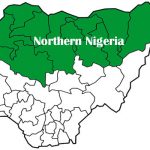Following the renewed appointment of the central bank governor Mr. Godwin Emefiele, analysts from Afrinvest, an investment banking and research firm have taken a holistic view of the monetary policy environment and concluded that though the investment climate is becoming clearer for subsequent years, the appointment is unlikely to mark a turning point in monetary policy.
They also said it portends continual influence of the presidency on the central bank, inability to meet financial inclusion targets and continual monetary interventions in the real sector of the economy.
President Buhari renewed the appointment of Godwin Emefiele as the Governor of the CBN for another 5 years term, starting June 2019. This is the first time since 1993 that a CBN governor has been given a second term.
While the anslysts said they are not surprised by this decision, considering the unusual silence around possible candidates for the position unlike in previous selection processes, they expressed worry that this appointment is unlikely to mark meet its financial inclusion targets. Wn monetary policy.
According to Afrinvest, it will not also lead to a turning point in expanding development mandate of the apex bank and the regulation and supervision of financial institutions.
Yet, these are areas where Nigeria must make strong improvements to overturn bleak medium-term macroeconomic projections. Without a change in direction, the firm of investment bankers said they expect slow growth, high inflation and high unemployment to persist.
In a note to clients, Afrinvest recalled that since the President Buhari’s administration began in May 2015, the independence of the CBN has taken further beatings.
It observed that the policy actions of the CBN has broadly aligned with these, making it hard to untangle the influence of the presidency.
“We believe this has wielded negative impact on investor confidence, with the result being reduced foreign investments. Also, based on our analysis, the CBN continues to support FG’s spending beyond approved limits. For instance, between 2016 and 2018, government’s borrowing has been short of actual deficit financing up to the tune of N3.6trillion, with implications for money supply. We believe this stance will be sustained over the next five years,” it stated.
Foreign Exchange Policy
The firm believes the CBN under Godwin Emefiele would favour keeping the fixed exchange rate and the current misalignment between the official rate of N305.00/US$1.00 and market led rates of N360.00/US$1.00.
A relatively strong external reserves level at US$44.8billion, which provides more than the recommended 3 months import cover ensures this in the short-term.
However, the boom and bust cycle of the commodity markets is inevitable, making the current stability of the currency untenable over the medium to long-term, it observed.
Afrinvest further said there is the need for a more flexible management of exchange rate to ensure adequate response to economic shocks, which in turn, prevents sharp exchange rate adjustments and sustains foreign investment, forex liquidity and growth.
“Evidence from previous commodity shocks shows that without a flexible exchange rate system, the chance of an economic recession or weak growth and banking system weakness is high,” it stated.
Electricity consumers to get prepaid meters 10 days after payment ― NERC
“Emefienomics” and Global Dynamics
As a regulator, the CBN according to Afrinvest, has been slow to innovate, with monetary and regulatory policies stuck in the past. Due to the boom and bust episodes in commodities market cycle, Central Banks in resource dependent countries are making changes to improve the resilience of the financial sector, responses to external vulnerabilities and to meet the goals of monetary policy.
In this regard, strengthening regulatory oversight, and adopting a flexible exchange rate policy and inflation targeting is common. The firm observed that this is becoming clearer in emerging markets such as South Africa, Russia and Egypt.
In Nigeria, the latest commodity market shock, the mid-2014 oil price slump, revealed faults once again as forex liquidity tightened due to reduced exports. The implication was weaker government revenues, steep currency devaluations, elevated inflation and weak growth.
“These were worsened by the CBN’s inadequate response in the form of a fixed exchange regime and capital controls, which eroded investor confidence and led to FX liquidity crunch.
“In the banking sector, asset quality deteriorated due to elevated non-performing loans (NPLs) and liquidity ratios reduced. Instructively, the NPL ratio for banks stood at 11.7 per cent as at 2018, significantly above the CBN’s 5.0per cent threshold,” the firm stated.
It explained that the CBN’s response to Fintech innovation has been slow and inadequate, thus the Bank is unlikely to meet its financial inclusion targets.
With the return of Godwin Emefiele, “we do not anticipate significant reforms that would support the economy’s resilience to external shocks, restore investor confidence or strengthen the financial system.”
Financing Agenda to Subsist
Although outside its core mandate, the CBN continues to provide funding support to the real economy in various forms. There are genuine reasons for development financing as credit to the private sector is weak, Afrinvest believes this should be led by fiscal authorities, properly budgeted and administered transparently.
“The administration of some of CBN’s intervention funds is not transparent; hence, a thorough analysis is impossible. The much-touted impacts of these schemes are also almost impossible to estimate given the lack of data, showing that the policies may not be achieving intended outcomes. “Indeed, anecdotal evidences from policy makers and local media suggest inefficiency in the administration of intervention funds such as the Anchor Borrowers’ Scheme.
“We continue to stress the need for reforms on the fiscal side to improve the business environment as elevated risks would continue to deter credit extension by banks, without which the impact of intervention funds will be limited. We believe the economy is better served by a CBN laser-focused on its objectives of price and exchange rate stability and the supervision and regulation of the financial system,” the firm’s note read in part.
WATCH TOP VIDEOS FROM NIGERIAN TRIBUNE TV
- Let’s Talk About SELF-AWARENESS
- Is Your Confidence Mistaken for Pride? Let’s talk about it
- Is Etiquette About Perfection…Or Just Not Being Rude?
- Top Psychologist Reveal 3 Signs You’re Struggling With Imposter Syndrome
- Do You Pick Up Work-Related Calls at Midnight or Never? Let’s Talk About Boundaries






